CFP®
Most people think all financial planners are “certified,” but this isn’t true. Just about anyone can use the title “financial planner.” CFP Board benefits the public by independently certifying financial planners. Although CFP Board does not guarantee their work, CFP® professionals have met rigorous qualifications for financial planning. Only those who have fulfilled CFP Board’s rigorous requirements can call themselves a CFP® professional.
As part of their certification, CFP® professionals commit to high ethical standards. What’s more, a CFP® professional must acquire several years of experience related to delivering financial planning services to clients and pass the comprehensive CFP® Certification Exam before they can call themselves a CFP® professional.
Working with a CFP® professional can help you find the path to achieving your financial goals. Your goals may evolve over the years as a result of shifts in your lifestyle or circumstances such as an inheritance, career change, marriage, house purchase or a growing family. As you begin to consider how best to manage your financial future, you should feel confident knowing that with a CFP® professional, you’re working with someone who has committed to CFP Board, as part of their certification, that they will act as a fiduciary, and therefore, act in their client’s best interests, at all times when providing financial advice to a client. CFP Board doesn’t guarantee a CFP® professional’s services, but CFP Board may sanction a CFP® professional who does not abide by this commitment.
RICP®
The purpose of retirement financial planner is to help individuals who are at or near retirement build a plan to ensure they meet their retirement income and other financial goals throughout their nonworking years and manage the many risks they may face. As coordinated planning and better decision making can improve retirement security, retirement income planning is a very rewarding area within financial planning. Research has shown that better decisions can make a big difference in retirement income, and with a retirement income planning certification like the RICP®, you can help your clients do well by doing good.
CLU®
A Chartered Life Underwriter® (CLU®) is a financial professional with extensive knowledge of life insurance. In most states, a CLU® designation exempts you from pre-licensing education and underwriting certification requirements. This means a CLU® has obtained a level of life insurance expertise that exceeds basic life insurance underwriting requirements.
A CLU® certification gives financial professionals:
In-depth knowledge of life insurance underwriting concepts and life insurance law within the context of overall risk management
The necessary knowledge to help clients address their estate planning needs
An understanding of solutions addressing the life insurance underwriting needs of business owners and professionals.
ChFC®
Advanced financial planning for every person and every need: that is the credo of the Chartered Financial Consultant® (ChFC®) designation program. ChFC® covers a must-have list of requirements for financial professionals, from knowledge on tax and retirement planning to special needs advising, wealth management, insurance, and more.
CPA
The CPA designation distinguishes licensed accounting professionals committed to protecting the public interest.
These professionals offer financial statement audits and other attestation services to help inform investors about the financial health of organizations. They provide individuals and families with valuable knowledge and advice on taxes and financial planning.
In business and industry, CPAs offer organizations around the world tax, financial reporting and advisory services to drive strategic decision-making and foster growth and success.
To earn the CPA license, accounting professionals must have extensive education—at least 150 hours—pass a rigorous four-part exam and meet experience requirements.
They must also commit to lifelong learning and adhere to a strict Code of Professional Conduct that requires competence, objectivity, integrity and independence.
Equitable Advisors and its financial professionals do not provide tax advice. Individuals should seek counsel from their personal tax advisor regarding their specific situation.
Certain members of Community Financial Group have obtained one, or more, of the listed designations. Refer to their individual bios for additional information.






